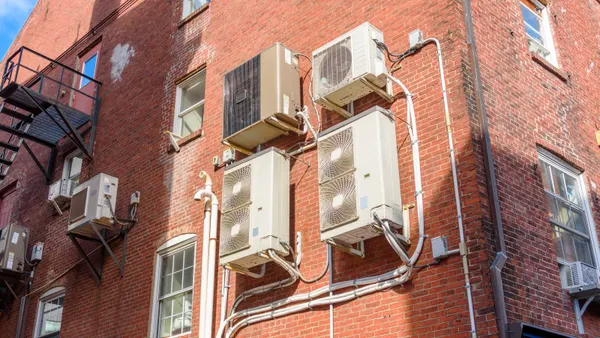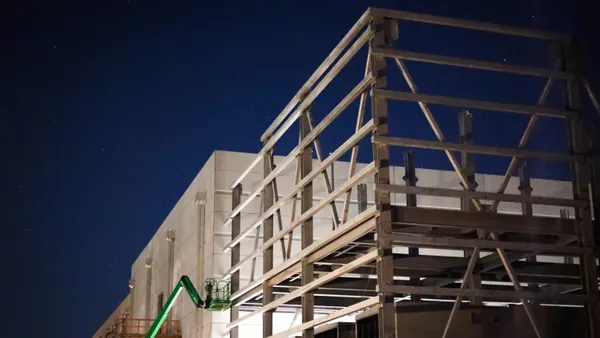Dive Brief:
- Lawmakers are struggling to form a conference committee that would combine broad energy legislation passed in both houses of the U.S. Congress, with significant distance remaining between S. 2012, the Senate's Energy Policy Modernization Act of 2015, and the House's version, H.R. 8.
- Sen. Lisa Murkowski (R-AK), chair of the Energy and Natural Resources Committee, previously indicated that she hoped a conference committee could complete its work before the August recess, but E&E Daily reports she is backing away from that idea and has indicated a lengthy process may lie ahead.
- There are major differences between the Republican-driven House bill and the bipartisan Senate version, which passed 81-12 in April. President Obama has threatened to veto the House version, saying it would undermine his administration's clean energy goals.
Dive Insight:
It was big news when the U.S. Senate easily passed broad bipartisan energy legislation last month. But chances for a smooth conference committee and expedited trip to President Obama desk are growing dim as lawmakers consider the significant task of combining two bills which contain significant differences.
E&E has been reporting on the process to confer a committee, and writes that members could be selected this week. But that is not the only challenge ahead.
"There's a whole lot of work that has to be done before you can get some kind of report out there, so I think the sooner a conference can start the better," Rep. Rob Bishop (R-Utah), told the outlet. "Actually having everything done before the conventions — that would be a heavy lift. I don't know if we can work that quickly."
Bishop chairs the House Natural Resources Committee and is expected to be on the conference committee.
But staffing the committee could be a problem, once lawmakers are chosen. Energy lobbyist Mike McKenna told E&E there could be a delay because full conferences are rare and many Congressional staffers have never worked on one. "This is a course they've never actually been on," McKenna said.
With those challenges emerging, Murkowski appears to be stepping back from her call to complete work on a combined energy bill by the August recess. Right now, the House is the bottleneck, she told E&E.
"They've got to make a decision here," she said. "Do they take up the Senate bill, which would be lovely, or do they send us what the House response is, and that's what we're waiting for now?"
Even once a committee is convened, it's not clear how much work lies ahead. The House and Senate bill outlines are similar, but there are real differences in their provisions. The White House has gone so far as to announce a likely veto of the House version, saying it “would undermine already successful initiatives," and specifying energy efficiency measures and reforms to the Federal Energy Regulatory Commission targeted by GOP lawmakers.
Utility Dive earlier this month reported on the two bills' provisions. The House version increases emphasis on the transmission, distribution, and storage of energy, looks to streamline siting and ease approvals for the export of petroleum products and liquefied natural gas.
The Senate's infrastructure title has provisions to modernize the grid, improve cybersecurity, maintain the Strategic Petroleum Reserve, and grow a stronger energy sector workforce. Like H.R. 8, the infrastructure title streamlines natural gas export projects. But the House bill limits reviews to 30 days while the Senate bill limits them to 45 days.
In an election year, showing that Congress can negotiate to pass major legislation could be beneficial to both parties, Chris Mele, legislative director for the National Association of Regulatory Utility Commissioners (NARUC) told Utility Dive earlier this month. But even that incentive is no guarantee of a smooth conference committee.
"They say politics is the art of the possible. But legislation is the art of the doable. Possible and doable are two very different things," Mele said.














